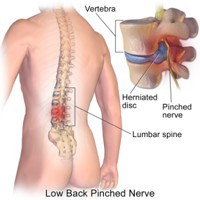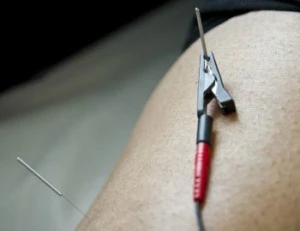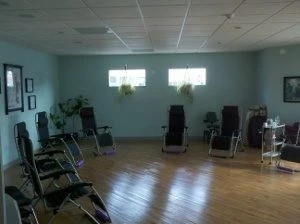Acupuncture Shown To Be More Cost Effective, and Effective Overall, than NSAIDS for Chronic Low Back Pain

Chronic low back pain is an increasing problem that is adding a substantial cost to our overall health care system and lowering the overall quality of life in individuals who are suffering from it ( 1 ). While there are many other pain related conditions driving the opioid epidemic, poorly treated chronic low back pain is certainly a contributing factor.
Acupuncture has been shown in numerous studies over and over again to be effective for most pain related conditions and particularly chronic low back pain. One study I wrote about recently, "Do The Effects of Acupuncture For Chronic Pain Last? (Yes, Study Says)" finds the that not only is acupuncture effective, the positive changes tend to last which leads to an overall cost effectiveness and salvage from other detriments of longer term OTC, prescription, and/or street drug usage.
 Researchers from the School of Traditional Medicine and other departments within Tehran University of Medical Sciences recently conducted a study evaluating the cost-utility of acupuncture vs. NSAIDS for chronic low back pain. Researchers recruited 100 patients with chronic low back pain randomly from four acupuncture clinics and two hospitals in Tehran. Obviously the acupuncture clinic patients were receiving acupuncture and the hospital patients were receiving standard medical care, i.e. NSAIDs. The study included 41 patients who were receiving acupuncture with electrical stimulation (or "EA" - electro-acupuncture) and 59 patients who were prescribed medications.
Researchers from the School of Traditional Medicine and other departments within Tehran University of Medical Sciences recently conducted a study evaluating the cost-utility of acupuncture vs. NSAIDS for chronic low back pain. Researchers recruited 100 patients with chronic low back pain randomly from four acupuncture clinics and two hospitals in Tehran. Obviously the acupuncture clinic patients were receiving acupuncture and the hospital patients were receiving standard medical care, i.e. NSAIDs. The study included 41 patients who were receiving acupuncture with electrical stimulation (or "EA" - electro-acupuncture) and 59 patients who were prescribed medications.
Looking at an entire range of social and economic factors, outcomes, duration of outcomes and many other factors to determine overall cost-utility the researchers concluded that:
"The results indicate a significant difference between EA and NSAIDs in cases of both utility and total cost. The findings demonstrate that EA is more cost-effective than NSAIDs, as therefore can be considered as an alternative treatment for CLBP, with reasonable cost-utility."
Now this would likely vary between countries where the cost and access to acupuncture can be quite different as well as access to traditional western medical health care. Overall, even in the United States where acupuncture is generally not covered by insurance it would still, in the vast majority of cases from what I've observed clinically, be very cost effective. Many people, particularly with chronic issues, have often spent literally thousands if not tens of thousands of dollars (in total health care costs) on other treatments before they even come in for acupuncture and this doesn't even begin to account for the overall costs to society, our health care system, and to each individual of the opioid crisis.
While as a whole acupuncture in any form is ultimately cost effective, in a practitioner driven effort to decrease costs in the US (and elsewhere) there are many in the field offering community, or "group" acupuncture. These types of settings allow lower overall cost to the practitioner and are generally offered at a discount.
 At our clinic, for example, at the time of this writing we offer community style acupuncture multiple times/week for less than 50% of our private acupuncture rates. An interesting study "Randomized Controlled Trial of Acupuncture for Women with Fibromyalgia: Group Acupuncture with Traditional Chinese Medicine Diagnosis-Based Point Selection" was recently conducted looking at this value and effectiveness proposition. And another recent study entitled ""It's Better in a Group Anyway": Patient Experiences of Group and Individual Acupuncture" used patient accounts to explore the benefits and drawbacks of acupuncture in a group setting - besides just looking at cost.
At our clinic, for example, at the time of this writing we offer community style acupuncture multiple times/week for less than 50% of our private acupuncture rates. An interesting study "Randomized Controlled Trial of Acupuncture for Women with Fibromyalgia: Group Acupuncture with Traditional Chinese Medicine Diagnosis-Based Point Selection" was recently conducted looking at this value and effectiveness proposition. And another recent study entitled ""It's Better in a Group Anyway": Patient Experiences of Group and Individual Acupuncture" used patient accounts to explore the benefits and drawbacks of acupuncture in a group setting - besides just looking at cost.
tag @yinyanghouse for questions/comments